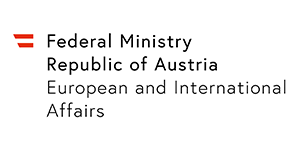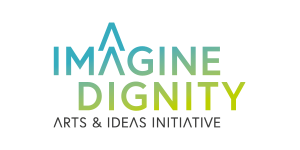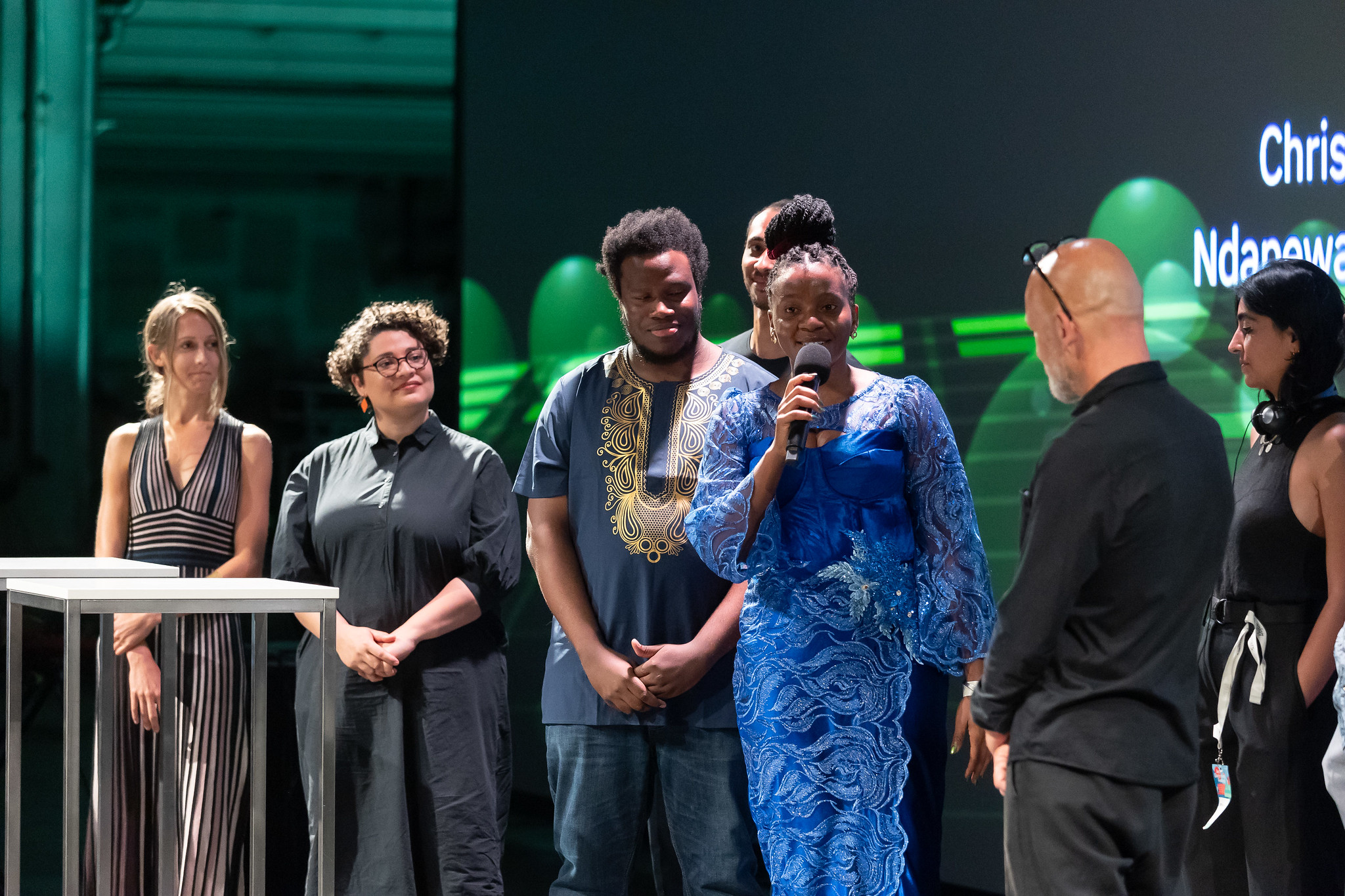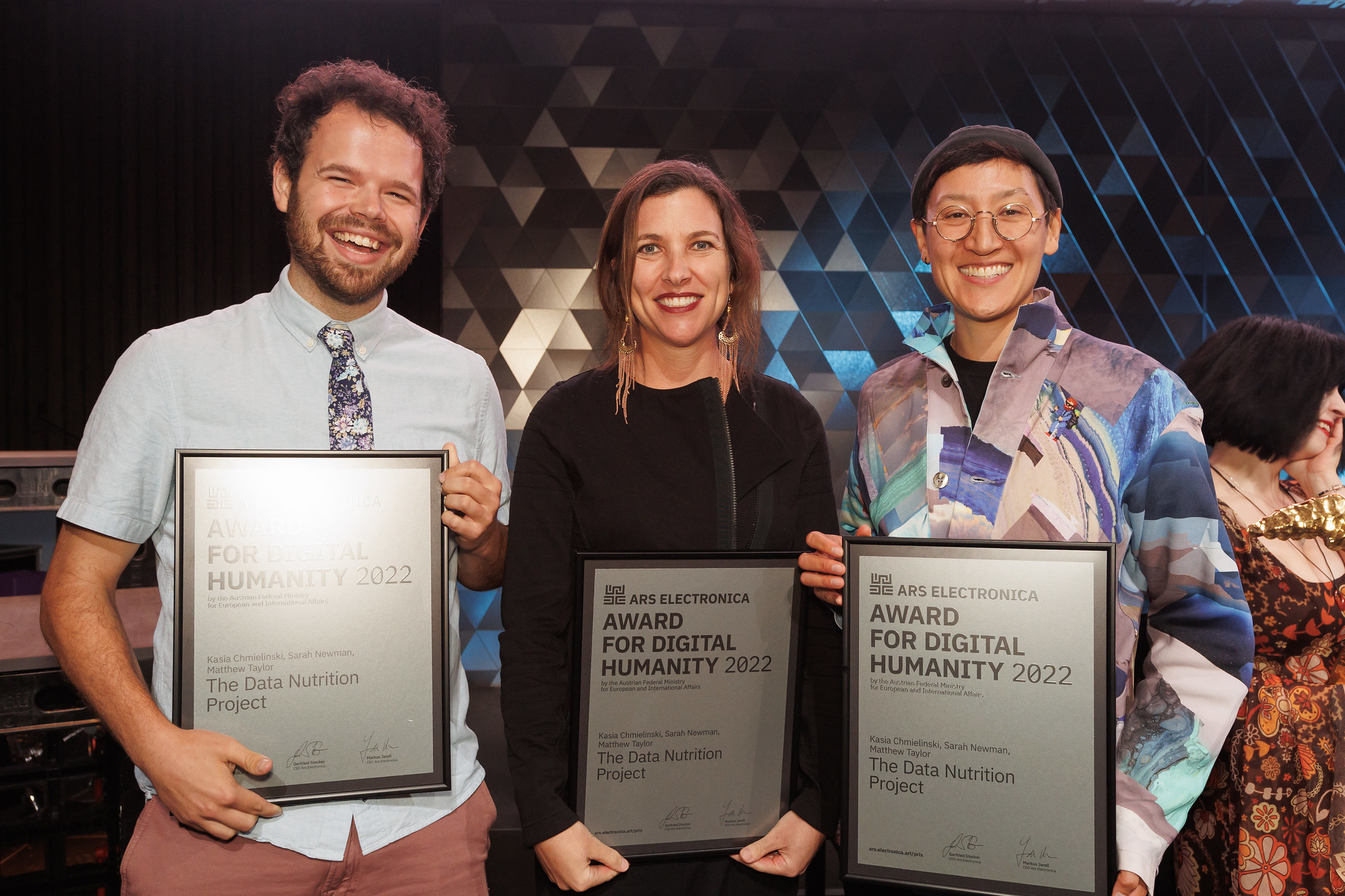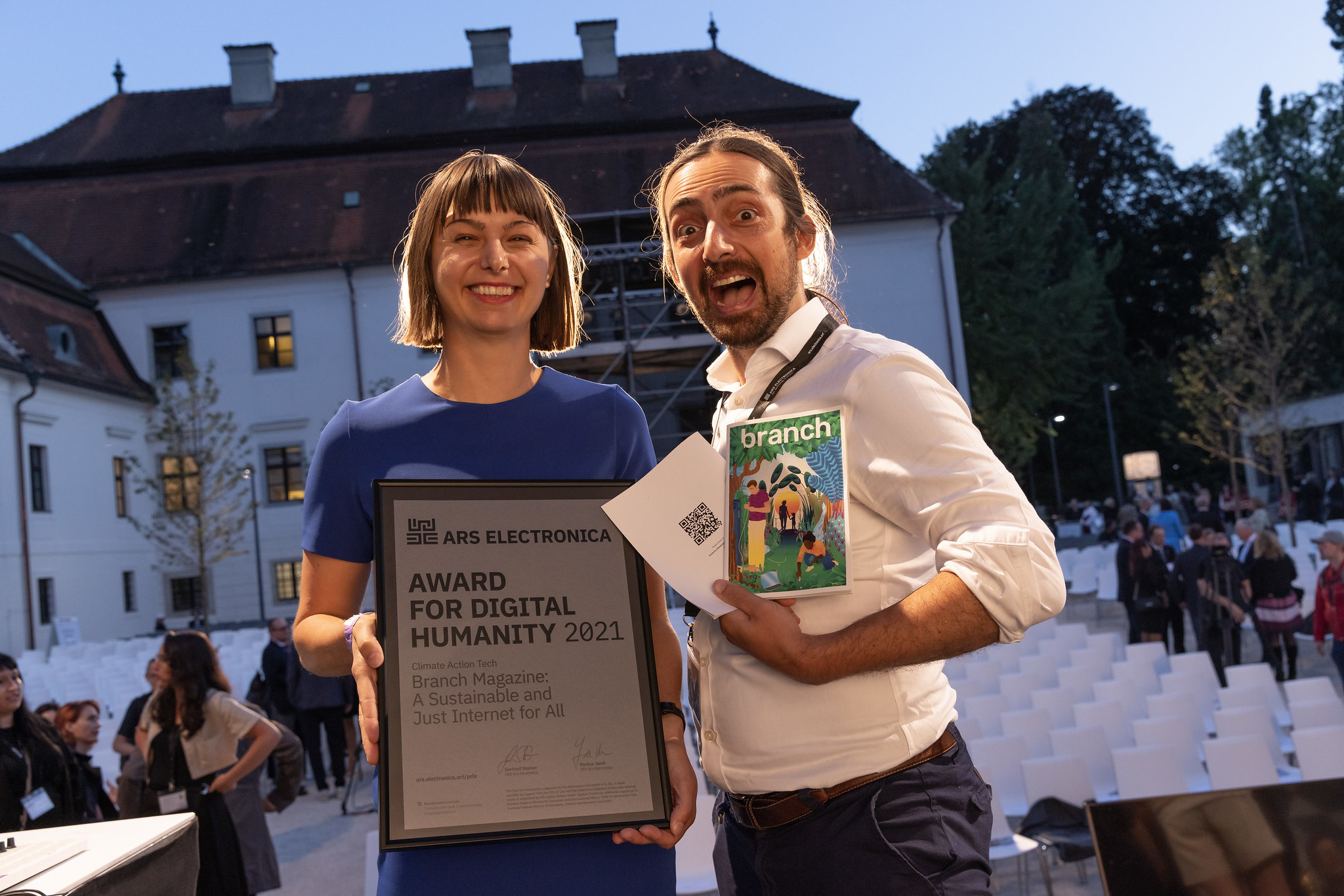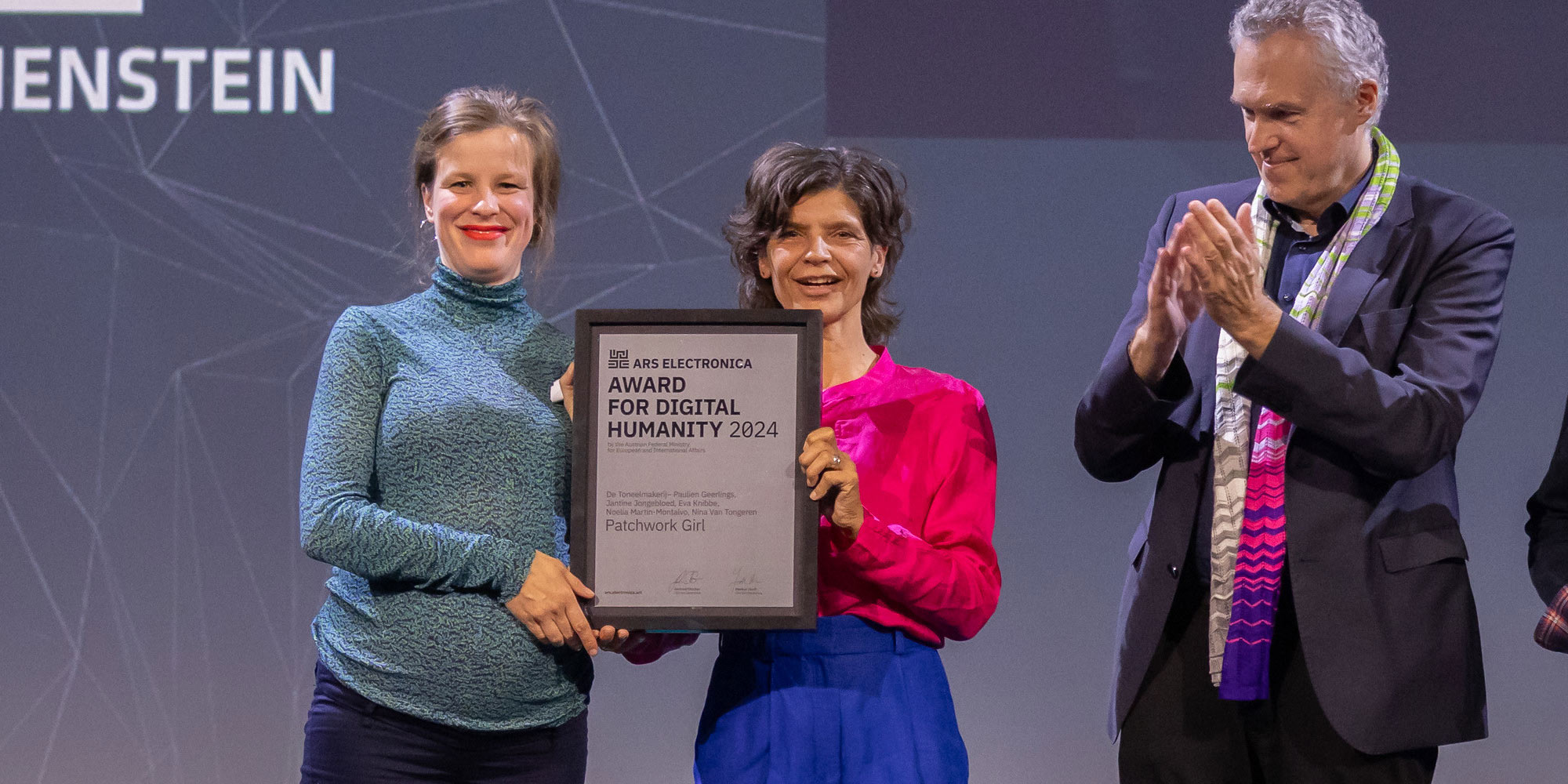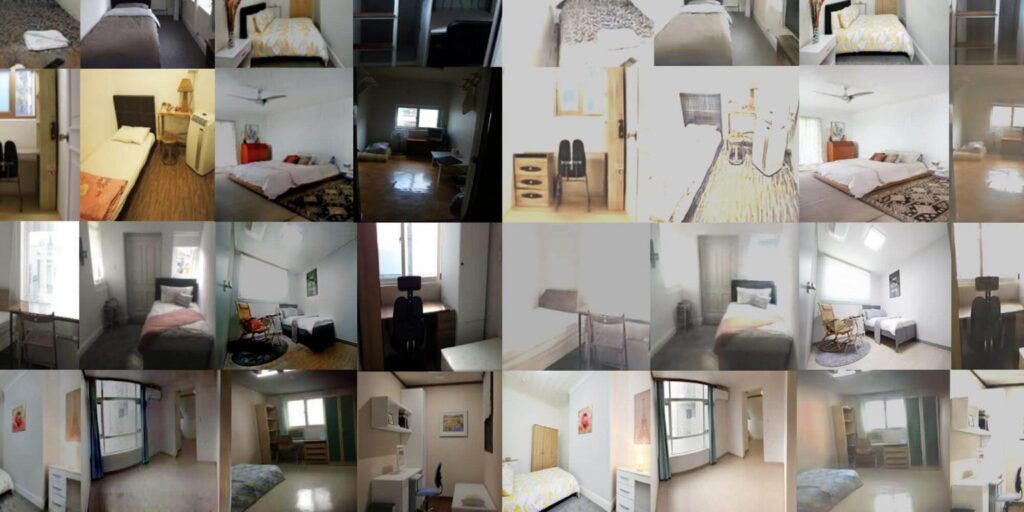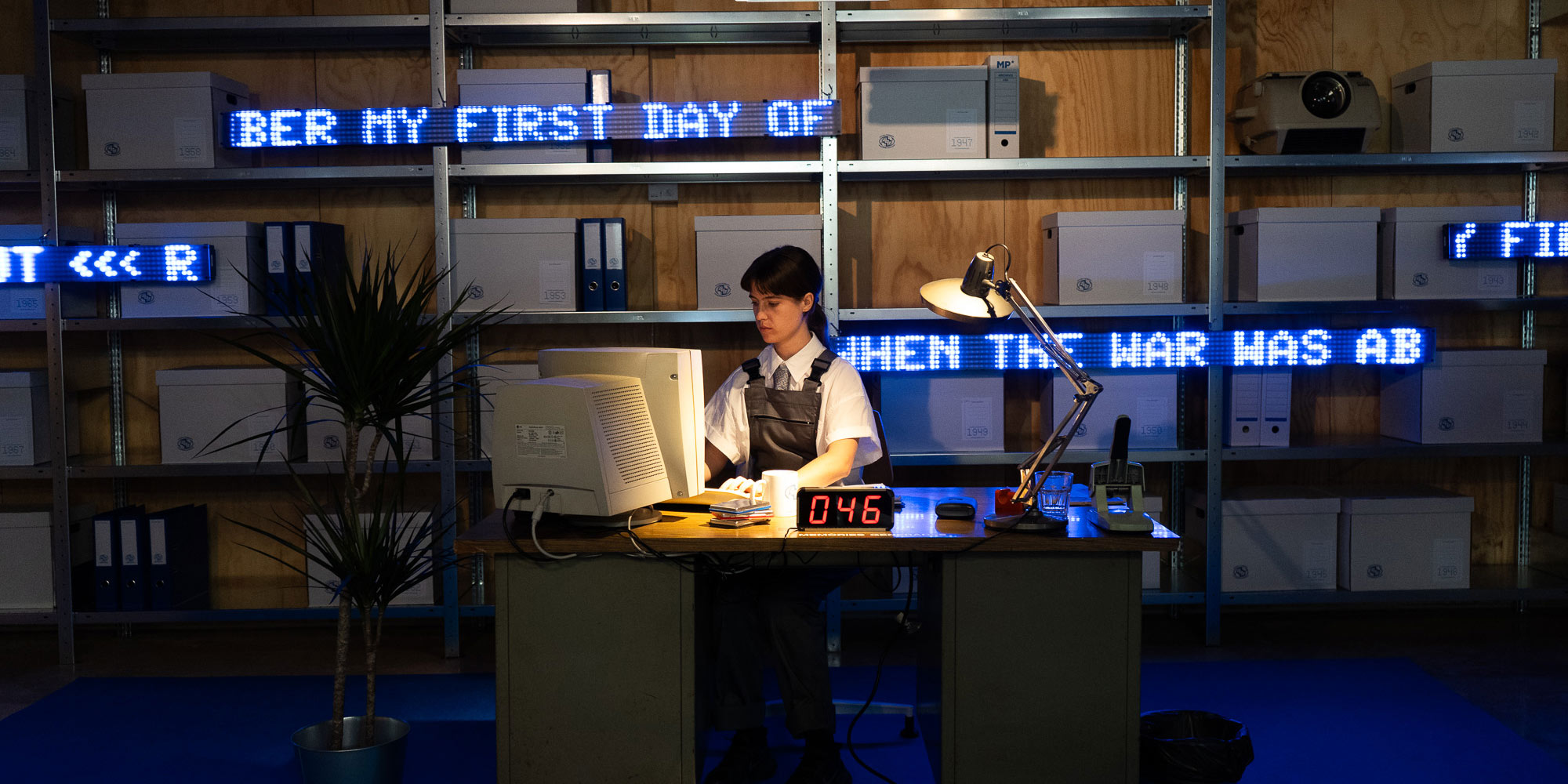
Ars Electronica Award for Digital Humanity
des österreichischen Bundesministeriums für europäische und internationale Angelegenheiten
Synthetic Memories / Domestic Data Streamers (ES), Photo: Domestic Data Streamers
10.000 € Preisgeld: Projekte, die die Bedeutung des kulturellen Austauschs und der Zusammenarbeit für die Entwicklung einer gesellschaftsorientierten, digitalen Welt demonstrieren.
Zusätzlich zu den Goldenen Nicas des Prix Ars Electronica wurde im Rahmen des Prix Ars Electronica zum fünften Mal der vom österreichischen Bundesministerium für europäische und internationale Angelegenheiten initiierte Ars Electronica Award for Digital Humanity ausgeschrieben. Jedes Projekt für den Prix Ars Electronica und den S+T+ARTS Prize konnte auch für den Ars Electronica Award for Digital Humanity eingereicht werden.
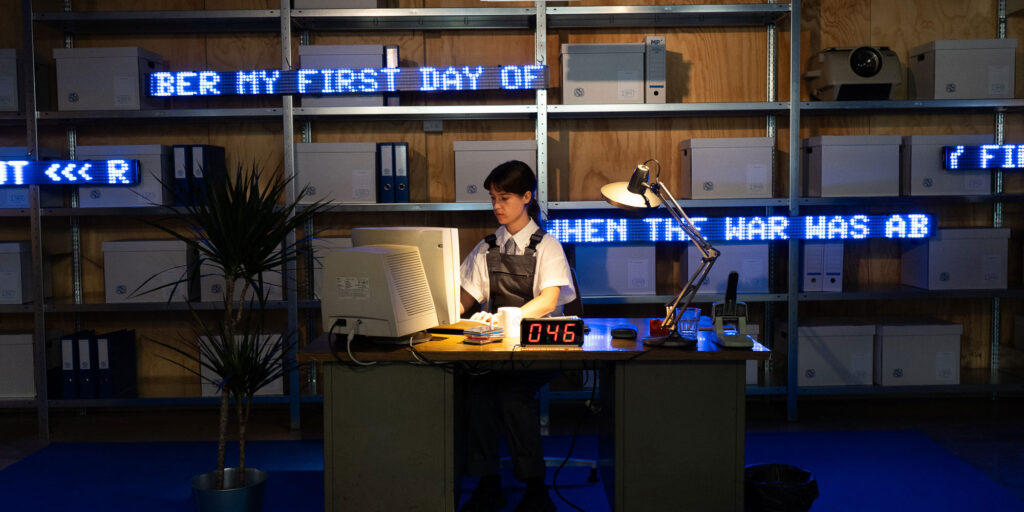
PREISTRÄGER*INNEN 2025
Synthetic Memories
Domestic Data Streamers (ES)
„Synthetic Memories ist ein sozial engagiertes Projekt zur Bewahrung von Erinnerungskultur, das generative KI einsetzt, um persönliche Erinnerungen zu rekonstruieren, die vom Verlust bedroht sind – insbesondere solche, die nie visuell festgehalten wurden. In geleiteten Interviews erzählen Teilnehmende von ihren Erfahrungen, die anschließend in KI-generierte Bilder übersetzt und durch gemeinsame Weiterentwicklung verfeinert werden.“
Foto: Domestic Data Streamers
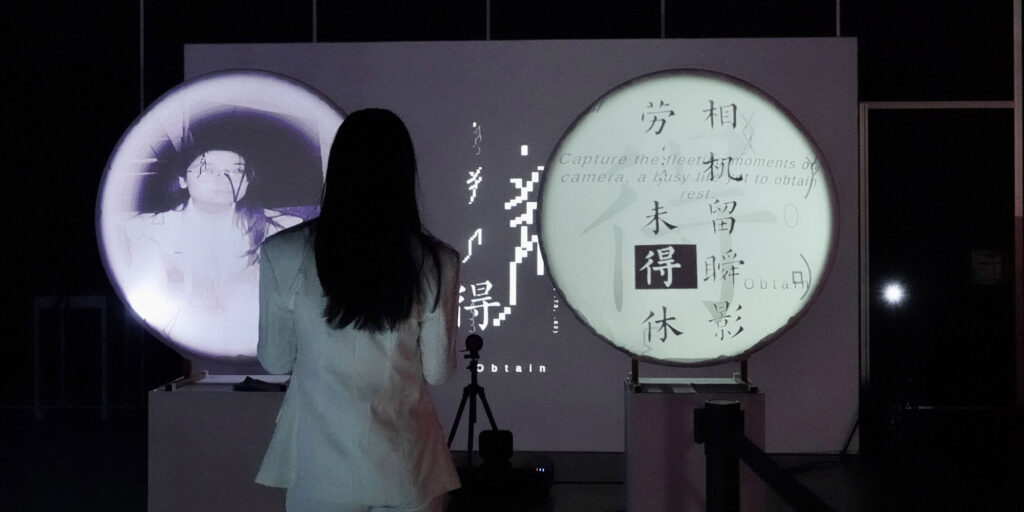
ANERKENNUNG 2025
AI Nüshu (AI女书)
Yuqian Sun (CN)
„AI Nüshu ist ein faszinierendes interaktives Kunstprojekt, das computerlinguistische Ansätze mit dem kulturellen Erbe von Nüshu verbindet – einer einzigartigen, jahrhundertealten Schriftsprache, die ausschließlich von Frauen in der chinesischen Provinz Hunan entwickelt und verwendet wurde.“
Foto: Yuqian Sun
Kunst und Kultur prägen unsere gemeinsame Wirklichkeit. Sie stellen die Frage, was einen Menschen in der digitalen Welt ausmacht. Künstler*innen erkennen in ihrer Rolle als Kulturbotschafter*innen die Potenziale und Fallstricke unserer aktuellen digitalen Transformation.
Kulturdiplomatie ist ein mächtiges Instrument, um das gegenseitige Verständnis zwischen Nationen zu fördern und den gesellschaftlichen Wandel auf globaler Ebene zu unterstützen. Damit ist sie in einer einzigartigen Position, um für einen neuen digitalen Humanismus einzutreten: Einen digitalen Humanismus, der eine gerechte und demokratische Gesellschaft aufbaut, in der der Mensch im Mittelpunkt des technologischen Fortschritts steht. Der digitale Humanismus stellt sicher, dass unsere Bedürfnisse und universellen Menschenrechte erfüllt werden und setzt sich für die Wahrung unserer Menschenwürde ein. Er gestaltet Technologien im Einklang mit menschlichen Werten und sieht alternative Wege für die Interaktion zwischen Mensch und Maschine vor, die auf Vielfalt und Inklusion bei der Entwicklung, Implementierung und Anpassung digitaler Werkzeuge ausgerichtet sind.
Der Ars Electronica Award for Digital Humanity betont gleichermaßen die Menschlichkeit und den Humanismus, die die Entwicklung neuer Technologien bestimmen müssen. Der Preis zeichnet Projekte und Kunstwerke aus, die zu einem grundlegenden Umdenken in unserem heutigen Umgang mit Technologie anregen: Es ist an der Zeit, unsere Rolle als bloße datengenerierende Maschinen abzulegen und aktiv an der Gestaltung unserer digitalen Zukunft teilzunehmen.
Können sich digitale Anwendungen stärker an menschlichen Bedürfnissen orientieren und auf kulturellen Werten basieren, die die Autonomie der Nutzer*innen über ihre Daten respektieren? Können Softwarelösungen auf den Werten kultureller Vielfalt statt auf infrastruktureller Uniformität aufbauen? Können digitale Werkzeuge verstärkt der kulturübergreifenden Zusammenarbeit, den internationalen kulturellen Beziehungen und dem gegenseitigen Verständnis dienen?
Der Digital Humanity Award konzentriert sich auf künstlerische Projekte, die sich mit sozialen, kulturellen und humanitären Fragen in unserer digitalen Gesellschaft auseinandersetzen. Er hebt herausragende Beispiele für kollaborative Praktiken zwischen Individuen unterschiedlicher Disziplinen und Hintergründe hervor. Besonderes Augenmerk legen die Jurymitglieder auf künstlerische Projekte, die über die bloße Reflexion über die Auswirkungen neuer Technologien hinausgehen und aktiv neue Wege, Prototypen und Vorbilder zu einem neuen digitalen Humanismus schaffen.
Beispielsweise können folgende Projekte (und darüber hinaus) eingereicht werden:
- Kunst-Wissenschafts-Kooperationen, die sich mit globalen gesellschaftlichen und humanitären Herausforderungen befassen
- Technologie- & Kulturdiplomatie sowie Advocacy-Projekte
- Künstlerische, grenzüberschreitende Kooperationsprojekte
- Projekte und Kunstwerke, die von Bürger*innen/Gemeinschaften initiiert wurden
- Initiativen zur kulturellen Vielfalt, die durch Technologien ermöglicht werden
- Soziale Software, Open-Source-Projekte
- interkulturelle Bildungsprojekte
- künstlerische Projekte, die in den Bereichen Digital Government, Demokratie, Governance verankert sind
- Gesellschaftszentrierte Projekte und Kunstwerke im Bereich von Künstlicher Intelligenz
- Projekte aus den Bereichen Kunst, Kultur und Journalismus, die darauf abzielen, die Qualität, das Vertrauen in und die Kompetenz im Umgang mit sozialen Medien zu erhöhen
- Projekte, die künstlerische Technologielösungen mit dem Ziel der Wahrung der Menschenrechte in den Vordergrund stellen, oder auf die nachhaltigen Entwicklungsziele der Vereinten Nationen hinweisen, oder das gegenseitige Verständnis zwischen verschiedenen Nationen, Minderheiten und Kulturen fördern.

Österreich als internationale Plattform für die Verschmelzung von Kunst und Technologie
Credit: „Tycho; Test One“ von Paul Friedlander, Foto: Ars Electronica / Martin Hieslmair
Die Abteilung Auslandskultur des BMEIA stiftet seit 2021 jährlich einen mit 10.000 € dotierten Preis, der im Rahmen der Prix Ars Electronica Gala vom Bundesminister für europäische und internationale Angelegenheiten und dem Festival Ars Electronica verliehen wird. Mit dem Bekenntnis zum digitalen Humanismus etabliert sich Österreich als internationale Plattform für die Verschmelzung von Kunst und Technologie (Culture Tech Hub), wie es im Regierungsprogramm als ausdrückliches Ziel vorgesehen ist.
Neue Technologien müssen sich einer künstlerischen Auseinandersetzung bzw. einem gesellschaftszentrierten Weltbild stellen. So können neue innovative Anwendungen, etwa im Bereich der künstlichen Intelligenz (KI) oder der Biotechnologie, nicht nur an ihren Auswirkungen auf unser Konsumverhalten und dem Erfolg ihrer Geschäftsmodelle gemessen werden, sondern auch an ihrer ethischen, sozialen und ökologischen Ausrichtung auf den Menschen und sein Wohlbefinden.
Der Preis fügt sich programmatisch in ein neues und innovatives Konzept internationaler Kulturbeziehungen und Kulturdiplomatie ein, das nicht einfach nationale künstlerische oder kulturelle Produktionen zur Schau stellt, sondern kulturellen Austausch, zwischenmenschliche Kontakte und interkulturellen Dialog und Zusammenarbeit fördert. Als wesentlicher Preis des österreichischen Außenministeriums unterstreicht er die Offenheit und den nach außen gerichteten Geist des österreichischen kulturellen, wissenschaftlichen und technologischen Ökosystems, das auf Zusammenarbeit und Bewusstsein für unsere gemeinsamen globalen Herausforderungen ausgerichtet ist.
Genau diese Zukunftskultur hat den Anspruch durch kreative Projekte und wegweisende Dialoge maßgeblichen Impulse zu setzen und strategische, interkulturelle Partnerschaften zu formen. Vor diesem Hintergrund wurde im Jahre 2023 der Programmschwerpunkt Digitaler Humanismus mit der IMAGINE Arts & Ideas Initiative der Auslandskultur verknüpft. Bei beiden Programmen steht die Erarbeitung von humanistischen, ökosozialen Ansätzen und Strategien zum übergreifenden Themenspektrum Natur, Mensch, Demokratie, wirtschaftliche Entwicklung und internationale Verständigung im Zeitalter Künstlicher Intelligenz im Zentrum. Der derzeit laufende Programmschwerpunkt IMAGINE DIGNITY soll dabei auch Brücke zwischen liberalen Demokratien und anderen Ländern für die Auseinandersetzung mit den großen Zukunftsthemen setzen.
Digitaler Humanismus
Digitaler Humanismus will neue Wege in eine digitale Gesellschaft aufzeigen und lädt das Publikum ein, sich eine neue Zukunft vorzustellen: Es ist an der Zeit, dass wir unsere Rollen als bloße Konsumenten und datengenerierende Maschinen ablegen. Wir müssen Verantwortung für unsere Zukunft übernehmen. Können Anwendungen digitaler Technologie, die sich an menschlichen Bedürfnissen und etablierten gesellschaftlichen Konventionen orientieren und die Autonomie der Nutzer*innen über ihre Daten respektieren, nicht genau dieser Wettbewerbsvorteil sein? Oder mit anderen Worten: Ist es möglich, eine digitale Gesellschaft zu schaffen, die den Wettbewerb fördert und gleichzeitig die europäischen Werte widerspiegelt?
Die globale Technologie-Industrie befindet sich seit einiger Zeit in einer Krise, die eine Überforderung unserer Gesellschaft mit den Auswirkungen neuer Technologien widerspiegelt (Fake News, Herabstufung von Menschen, Cyberkriminalität, Handel mit persönlichen Daten usw.). Der weltweite Backlash („techlash“) gegen die Tech-Industrie ist mittlerweile zu einem ernsthaften Imageproblem für globale Internetplattformen wie Facebook, Google und Co. geworden. Hinzu kommt, dass Überwachungssysteme wie KI-basierte Gesichtserkennung in autoritär regierten Ländern (z.B. China) immer offener zur Unterdrückung der Menschenrechte und zur sozialen Kontrolle eingesetzt werden. Ein Trend, der in einigen Ländern durch die Möglichkeiten und Anforderungen in Zeiten globaler Pandemien sogar noch verstärkt wird.
Für einen neuen digitalen Humanismus sind die Kunst und die menschliche Kreativität als wesentliche Verbündete unersetzlich. In ihrer Doppelfunktion als Humanistinnen und Futuristinnen sind Künstler*innen in einzigartiger Weise prädestiniert, durch künstlerisches Denken und kritische, unkonventionelle Reflexion (thinking out-of-the-box) einen positiven Einfluss auf die Entwicklung technologischer Innovationen auszuüben.
Weitere Informationen finden Sie auf der European Platform for Digital Humanism von Ars Electronica:
- European Platform for Digital Humanism beim Ars Electronica Festival 2019
- European Platform for Digital Humanism beim Ars Electronica Festival 2020
- European Platform for Digital Humanism beim Ars Electronica Festival 2021
- Ars Electronica Award for Digital Humanity 2022 beim Ars Electronica Festival 2022
- European Platform for Digital Humanism beim Ars Electronica Festival 2023
- Ars Electronica Platform Europe
- Ars Electronica Blog
Bisherige Preisträger*innen
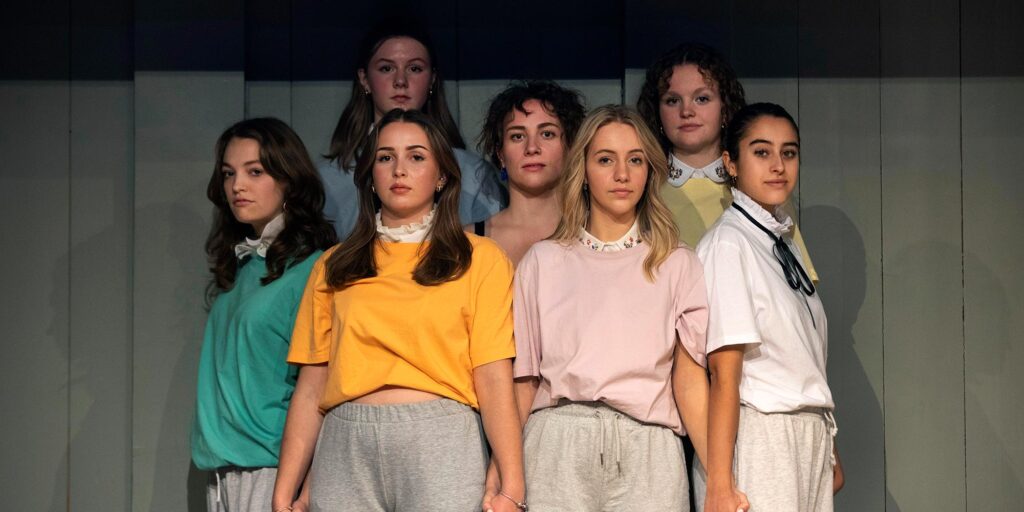
Preisträger*innen 2024
Patchwork Girl
De Toneelmakerij (NL) – Paulien Geerlings (NL), Jantine Jongebloed (NL), Eva Knibbe (NL), Noelía Martin-Montalvo (ES), Nina Van Tongeren (NL)
„Patchwork Girl excels in promoting human-centered, collaborative practices and cross-disciplinary engagement, aligning perfectly with the Ars Electronica Award for Digital Humanity’s objectives. It transcends mere reflection on technology’s effects, advocates for systemic change in digital spaces, and opens new pathways towards the protection of human dignity.“
Photo: Sanne Peper
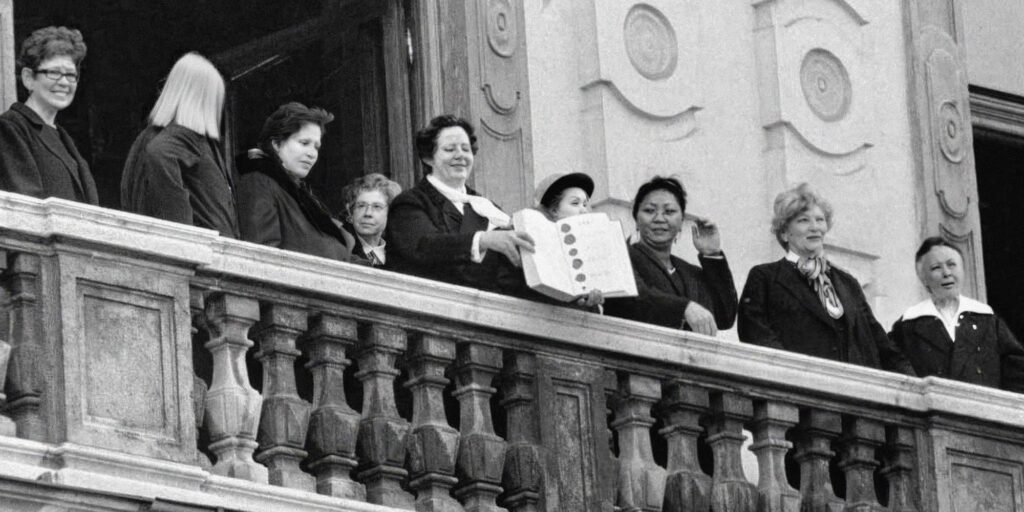
Anerkennung 2024
AI and the Art of Historical Reinterpretation – Filling Gender Bias Gaps
Claudia Larcher (AT)
„This project stands as a powerful example of how AI can be harnessed to empower marginalized groups and reshape our understanding of history.“
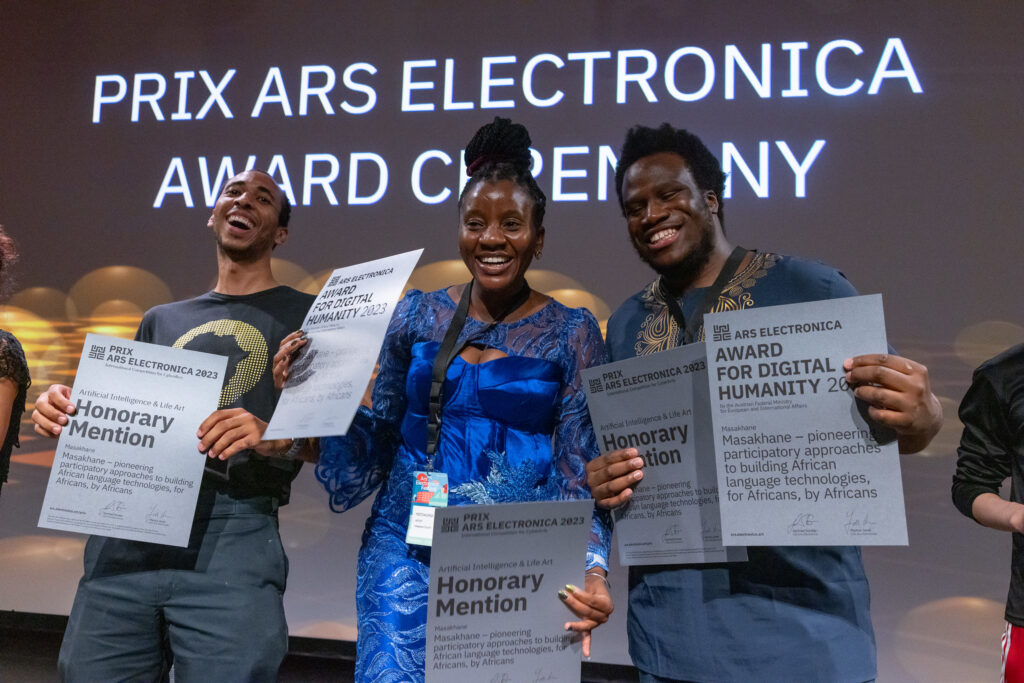
Preisträger*innen 2023
Masakhane—pioneering participatory approaches to building African language technologies, for Africans, by Africans
Masakhane (INT)
Am afrikanischen Kontinent werden mehr als 2.000 Sprachen gesprochen, in maschinellen Übersetzungs- und Kommunikationsprogrammen sind sie allerdings kaum repräsentiert. Die Nachwirkungen der kolonialen Vergangenheit zeigen sich hier in der mangelnden Berücksichtigung afrikanischer Sprachen. Dieser Entwicklung wirkt die Organisation Masakhane (isiZulu für „We build together“) entgegen, die zur NLP (Natural Language Processing)-Forschung beitragen will.
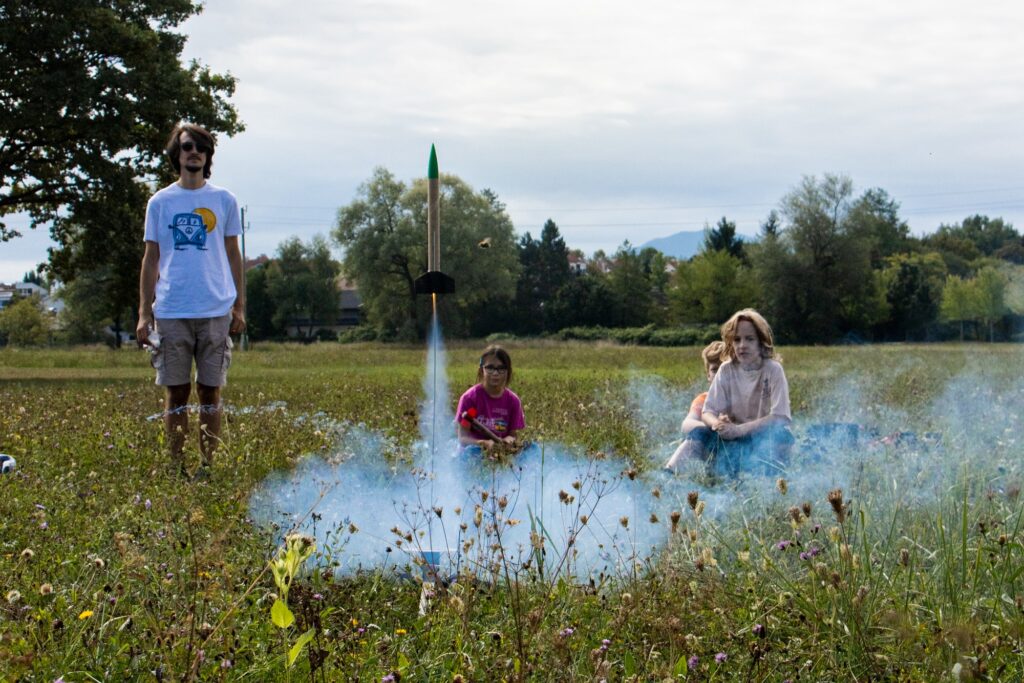
Anerkennung 2023
konS ≡ PARK – Academy for Contemporary Investigative Art
konS ≡ PARK – Academy for contemporary investigative art
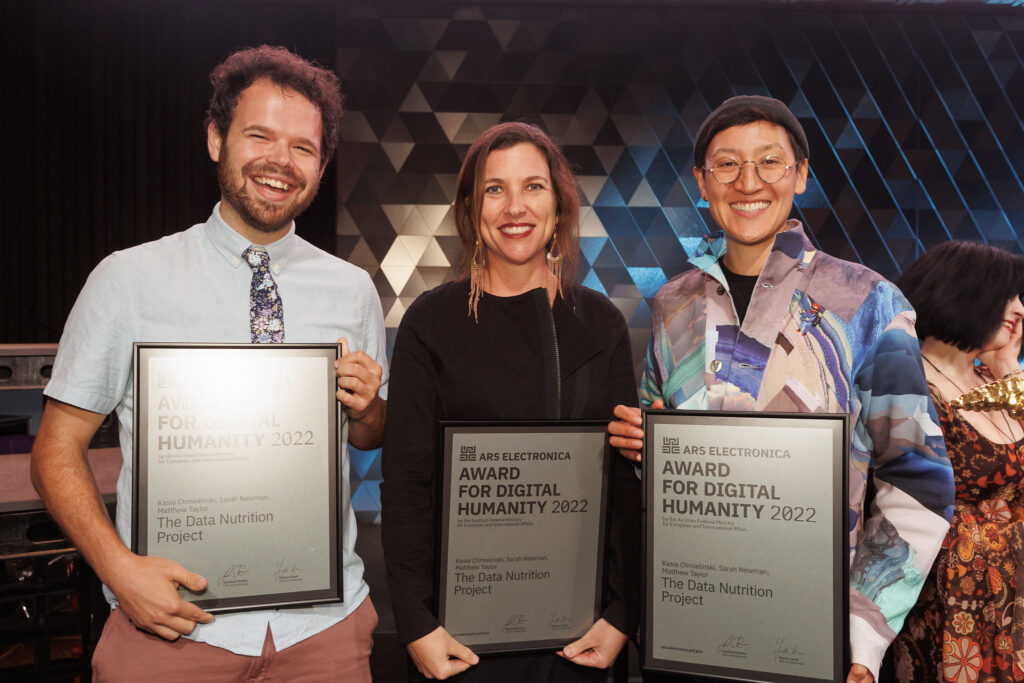
Preisträger*innen 2022
The Data Nutrition Project
Sarah Newman (US), Kasia Chmielinski (US), Matthew Taylor (US)
Das Data Nutrition Project ist eine Initiative von Technolog*innen, Künstler*innen, Wissenschaftler*innen und Praktiker*innen mit dem Ziel, eine schnellere und bessere Bewertung von Datensätzen zu ermöglichen: Das „Dataset Nutrition Label“ ist vergleichbar mit dem Nährwertkennzeichen für Lebensmittel und enthält wesentliche Informationen über den jeweiligen Datensatz. Neben der Entwicklung digitaler Etiketten und einer Engine zu deren Erstellung arbeitet das Team auch an Bildungsinitiativen, einem Kinderbuch und einem Podcast. All diese Initiativen sollen das Bewusstsein für bestehende Probleme in KI-Systemen schärfen und zu deren Lösung beitragen.
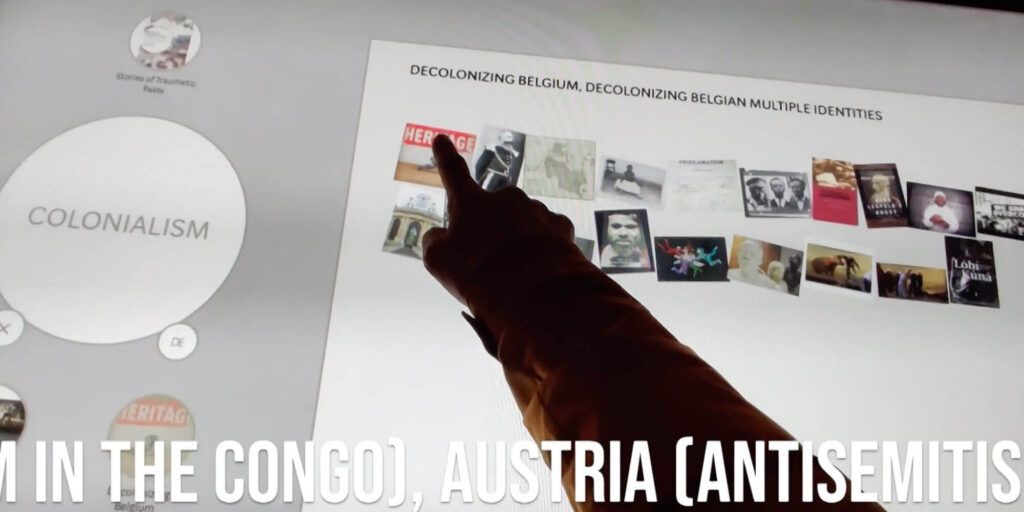
Anerkennung 2022
Digital Research Travelogues through European Archives
Marina Gržinić, Jovita Pristovšek, Sophie Uitz (INT)
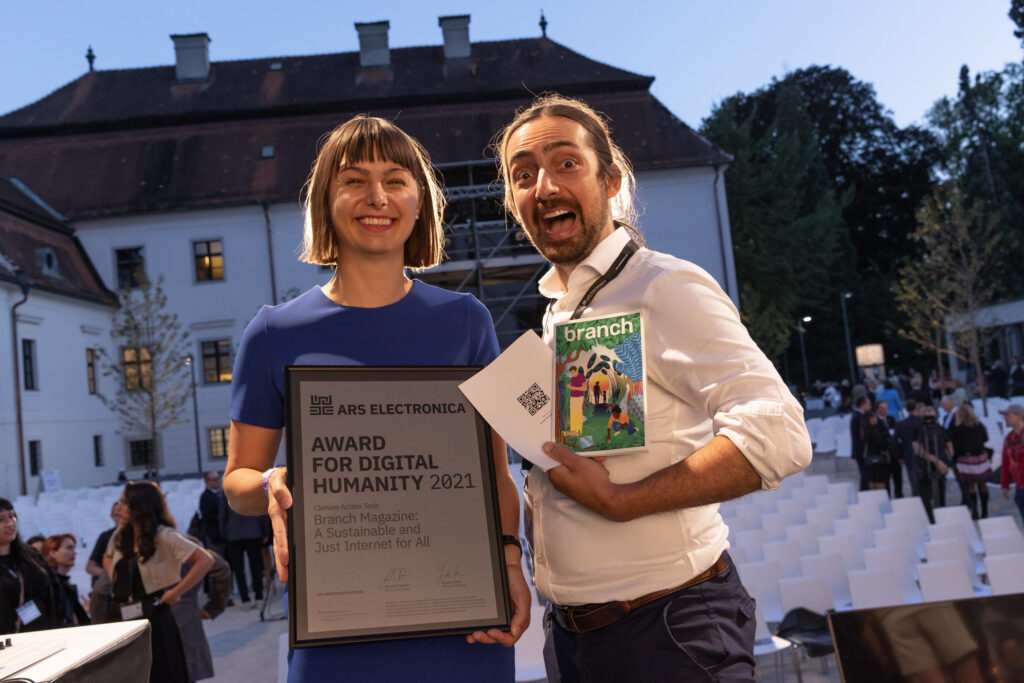
Preisträger*innen 2021
Branch Magazine: A Sustainable and Just Internet for All
Climate Action Tech (EU/Global)
Das Internet ist die größte mit fossilen Brennstoffen betriebene Maschine der Welt. Wenn wir so weitermachen wie bisher, wird der IT-Sektor bis 2040 für 14 % der weltweiten Kohlenstoffemissionen verantwortlich sein. Die Macher des „Branch Magazine“ haben dagegen eine andere Vision für die Zukunft des WWW: Das Internet soll unserer kollektiven Befreiung dienen und der ökologischen Nachhaltigkeit verpflichtet sein. Das Online-Magazin „Branch“ soll dazu einen Beitrag leisten.
Juries
Regina Rusz is an Austrian diplomat and currently heads the General Directorate for international cultural relations at the Austrian Foreign Ministry. She has worked at embassies and cultural forums in Croatia, Serbia, Hungary and Slovakia, among others. The advancement of women is, and always has been, an important concern in her professional activities as Director of the Cultural Forums in Budapest (2017-2020) and Belgrade (2001-2005), she is one of the founders of the programme “Calliope.jointhedots” (www.calliope.at) which aims at supporting female Austrian artists and scientists abroad. From 2008-2012, she was a member of the Austrian Task Force for Combating Human Trafficking at the Ministry of Foreign Affairs.
Katalin Tünde Huber is the Director of the Department for cultural and scientific programmes abroad at the Austrian Foreign Ministry, where she is responsible for coordinating the cultural activities of the Austrian Cultural Forums and Embassies. From 2017-2020 she served as Director of the Austrian Cultural Forum London. Before engaging in arts and culture, she focused on EU affairs and the Western Balkans region. She worked at the Austrian Permanent Representations to the EU (Brussels) and to the United Nations (New York). She studied Political Science, Hungarian and French and worked for the Stability Pact for South Eastern Europe.
Thomas Kloiber, born in 1972 Graz/Austria, studied catholic theology at the University of Vienna and at the Facultad de Teología del Norte de España Burgos. Before he joined the Austrian Federal Ministry for European and International Affairs in 2008, he worked as high school teacher for religion and as educational trainer for students of catholic theology. He worked from 2003 to 2006 as General Secretary of the Federation of Catholic Family Associations ion Europe. As employee of the Austrian Federal Ministry for European and International Affairs he served at the Austrian Embassies in Washington D.C. and in Moscow as well as at the Cultural Forums in Tehran and Bucharest.
Gerfried Stocker is a media artist and an engineer for communication technology and has been artistic director and co-CEO of Ars Electronica since 1995. In 1995/96 he developed the exhibition strategies of the Ars Electronica Center with a small team of artists and technicians and was responsible for the setup and establishment of Ars Electronica’s own R & D facility, the Ars Electronica Futurelab. He has overseen the development of the program for international Ars Electronica exhibitions since 2004, the planning and the revamping of the contents for the Ars Electronica Center, which was enlarged in 2009, since 2005; the expansion of the Ars Electronica Festival since 2015; and the extensive overhaul of Ars Electronica Center’s contents and interior design in 2019. Stocker is a consultant for numerous companies and institutions in the field of creativity and innovation management and is active as a guest lecturer at international conferences and universities. In 2019 he was awarded an honorary doctorate from Aalto University, Finland.
Veronika Liebl is currently Managing Director at the department Festival/Prix/Exhibitions of Ars Electronica. She studied economic and business science at Johannes Kepler University in Linz (graduated in 2010) with study visits at Harvard University (US) and Université de Fribourg (CH) and has an interdisciplinary background in non-profit and innovation management. Since 2011 she is in charge of cultural management and European project development at Ars Electronica Linz and serves as a member for the Linz’ city culture council and Linz’ UNESCO City of Media Arts Executive Board. She leads Ars Electronica’s European collaboration projects in the field of culture, research & education and developed, launched as well as executed in this position – together with her team – numerous EU projects such as the STARTS Prize, DOORS (Digital Incubator for Museums) or the European ARTificial Intelligence Lab.
Ambassador Christoph Thun-Hohenstein (born 1960) is Director General for International Cultural Relations at the Federal Ministry for European and International Affairs of the Republic of Austria. After studying law, political science, and history of art at the University of Vienna, Thun-Hohenstein worked for the Austrian Foreign Ministry and held posts in Abidjan, Geneva, and Bonn. He was Director of the Austrian Cultural Forum New York from 1999 to 2007. From 2007 to 2011, he served as Managing Director of departure, the Creative Agency of the City of Vienna. From 2011 to 2021, Thun-Hohenstein was General Director and Artistic Director of the MAK – Austrian Museum of Applied Arts, Vienna. He initiated the Vienna Biennale for Change, which he directed from 2014 until 2022. Most recently, he initiated the Vienna Climate Biennale, which will take place for the first time from April through July 2024. Thun-Hohenstein has published on topics dealing above all with European integration, contemporary arts and culture, digital modernity, climate care, and circular culture and held numerous lectures on these topics. He has also curated exhibitions and he regularly serves on selection juries.
Regina Rusz is an Austrian diplomat and currently heads the department for cultural and scientific events abroad at the Austrian Foreign Ministry. She has worked at embassies and cultural forums in Croatia, Serbia, Hungary and Slovakia, among others. The advancement of women is, and always has been, an important concern in her professional activities as Director of the Cultural Forums in Budapest (2017-2020) and Belgrade (2001-2005), From 2008-2012, she was a member of the Austrian Task Force for Combating Human Trafficking at the Ministry of Foreign Affairs.
Thomas Kloiber, born in 1972 Graz/Austria, studied catholic theology at the University of Vienna and at the Facultad de Teología del Norte de España Burgos. Before he joined the Austrian Federal Ministry for European and International Affairs in 2008, he worked as high school teacher for religion and as educational trainer for students of catholic theology. He worked from 2003 to 2006 as General Secretary of the Federation of Catholic Family Associations ion Europe. As employee of the Austrian Federal Ministry for European and International Affairs he served at the Austrian Embassies in Washington D.C. and in Moscow as well as at the Cultural Forums in Tehran and Bucharest.
Gerfried Stocker (AT) is a media artist and an engineer for communication technology and has been artistic director and co-CEO of Ars Electronica since 1995. In 1995/96 he developed the exhibition strategies of the Ars Electronica Center with a small team of artists and technicians and was responsible for the setup and establishment of Ars Electronica’s own R & D facility, the Ars Electronica Futurelab. He has overseen the development of the program for international Ars Electronica exhibitions since 2004, the planning and the revamping of the contents for the Ars Electronica Center, which was enlarged in 2009, since 2005; the expansion of the Ars Electronica Festival since 2015; and the extensive overhaul of Ars Electronica Center’s contents and interior design in 2019. Stocker is a consultant for numerous companies and institutions in the field of creativity and innovation management and is active as a guest lecturer at international conferences and universities. In 2019 he was awarded an honorary doctorate from Aalto University, Finland.
Veronika Liebl (AT) is currently Managing Director at the department Festival/Prix/Exhibitions of Ars Electronica. She studied economic and business science at Johannes Kepler University in Linz (graduated in 2010) with study visits at Harvard University (US) and Université de Fribourg (CH) and has an interdisciplinary background in non-profit and innovation management. Since 2011 she is in charge of cultural management and European project development at Ars Electronica Linz and serves as a member for the Linz’ city culture council and Linz’ UNESCO City of Media Arts Executive Board. She leads Ars Electronica’s European collaboration projects in the field of culture, research & education and developed, launched as well as executed in this position – together with her team – numerous EU projects such as the STARTS Prize, DOORS (Digital Incubator for Museums) or the European ARTificial Intelligence Lab.
Ambassador Christoph Thun-Hohenstein (born 1960) is Director General for International Cultural Relations at the Federal Ministry for European and International Affairs of the Republic of Austria. After studying law, political science, and history of art at the University of Vienna, Thun-Hohenstein worked for the Austrian Foreign Ministry and held posts in Abidjan, Geneva, and Bonn. He was Director of the Austrian Cultural Forum New York from 1999 to 2007. From 2007 to 2011, he served as Managing Director of departure, the Creative Agency of the City of Vienna. From 2011 to 2021, Thun-Hohenstein was General Director and Artistic Director of the MAK – Austrian Museum of Applied Arts, Vienna. He initiated the Vienna Biennale for Change, which he directed from 2014 until 2022. Most recently, he initiated the Vienna Climate Biennale, which will take place for the first time from April through July 2024. Thun-Hohenstein has published on topics dealing above all with European integration, contemporary arts and culture, digital modernity, climate care, and circular culture and held numerous lectures on these topics. He has also curated exhibitions and he regularly serves on selection juries.
Regina Rusz is an Austrian diplomat and currently heads the department for cultural and scientific events abroad at the Austrian Foreign Ministry. She has worked at embassies and cultural forums in Croatia, Serbia, Hungary and Slovakia, among others. The advancement of women is, and always has been, an important concern in her professional activities as Director of the Cultural Forums in Budapest (2017-2020) and Belgrade (2001-2005), From 2008-2012, she was a member of the Austrian Task Force for Combating Human Trafficking at the Ministry of Foreign Affairs.
Thomas Kloiber, born in 1972 Graz/Austria, studied catholic theology at the University of Vienna and at the Facultad de Teología del Norte de España Burgos. Before he joined the Austrian Federal Ministry for European and International Affairs in 2008, he worked as high school teacher for religion and as educational trainer for students of catholic theology. He worked from 2003 to 2006 as General Secretary of the Federation of Catholic Family Associations ion Europe. As employee of the Austrian Federal Ministry for European and International Affairs he served at the Austrian Embassies in Washington D.C. and in Moscow as well as at the Cultural Forums in Tehran and Bucharest.
Gerfried Stocker (AT) is a media artist and an engineer for communication technology and has been artistic director and co-CEO of Ars Electronica since 1995. In 1995/96 he developed the exhibition strategies of the Ars Electronica Center with a small team of artists and technicians and was responsible for the setup and establishment of Ars Electronica’s own R & D facility, the Ars Electronica Futurelab. He has overseen the development of the program for international Ars Electronica exhibitions since 2004, the planning and the revamping of the contents for the Ars Electronica Center, which was enlarged in 2009, since 2005; the expansion of the Ars Electronica Festival since 2015; and the extensive overhaul of Ars Electronica Center’s contents and interior design in 2019. Stocker is a consultant for numerous companies and institutions in the field of creativity and innovation management and is active as a guest lecturer at international conferences and universities. In 2019 he was awarded an honorary doctorate from Aalto University, Finland.
Veronika Liebl (AT) is currently Managing Director at the department Festival/Prix/Exhibitions of Ars Electronica. She studied economic and business science at Johannes Kepler University in Linz (graduated in 2010) with study visits at Harvard University (US) and Université de Fribourg (CH) and has an interdisciplinary background in non-profit and innovation management. Since 2011 she is in charge of cultural management and European project development at Ars Electronica Linz and serves as a member for the Linz’ city culture council and Linz’ UNESCO City of Media Arts Executive Board. She leads Ars Electronica’s European collaboration projects in the field of culture, research & education and developed, launched as well as executed in this position – together with her team – numerous EU projects such as the STARTS Prize, DOORS (Digital Incubator for Museums) or the European ARTificial Intelligence Lab.
Martin Honzik is an artist and director of Ars Electronica’s Festival, Prix and Exhibitions divisions. He studied visual experimental design at Linz Art University (graduated in 2001) and completed the master’s program in culture & media management at the University of Linz and ICCM Salzburg (graduated in 2003). From 1998 to 2001, he was a member of the production team at the OK Center for Contemporary Art. In 2001, he joined the staff of the Ars Electronica Futurelab, where, until 2005, his responsibilities included exhibition design, art in architecture, interface design, event design and project management. Since 2006, Martin Honzik has been director of the Ars Electronica Festival and the Prix Ars Electronica and in charge of exhibitions in the Ars Electronica Center as well as Ars Electronica’s international exhibition projects.
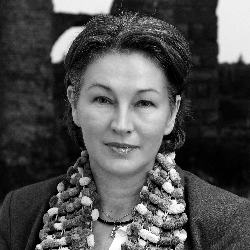
Teresa Indjein was born in Vienna. She studied law, music and languages and has worked in France, Poland, the US, Germany and Italy. She is Director General for International Cultural Affairs at the Austrian Ministry for Foreign Affairs.
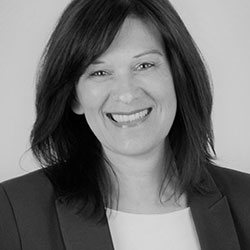
Sonja Reiser-Weinzettl is head of unit V.2b – Exhibitions and Digital Media at the Austrian Ministry for Foreign Affairs. She studied Educational Science and is currently studying Image Science in Krems. She has worked in the UK, Czechia and Slovenia.

Gerfried Stocker is a media artist and an engineer for communication technology and has been artistic director and co-CEO of Ars Electronica since 1995. In 1995/96 he developed the exhibition strategies of the Ars Electronica Center with a small team of artists and technicians and was responsible for the setup and establishment of Ars Electronica’s own R & D facility, the Ars Electronica Futurelab. He has overseen the development of the program for international Ars Electronica exhibitions since 2004, the planning and the revamping of the contents for the Ars Electronica Center, which was enlarged in 2009, since 2005; the expansion of the Ars Electronica Festival since 2015; and the extensive overhaul of Ars Electronica Center’s contents and interior design in 2019. Stocker is a consultant for numerous companies and institutions in the field of creativity and innovation management and is active as a guest lecturer at international conferences and universities. In 2019 he was awarded an honorary doctorate from Aalto University, Finland.

Martin Honzik is an artist and director of Ars Electronica’s Festival, Prix and Exhibitions divisions. He studied visual experimental design at Linz Art University (graduated in 2001) and completed the master’s program in culture & media management at the University of Linz and ICCM Salzburg (graduated in 2003). From 1998 to 2001, he was a member of the production team at the OK Center for Contemporary Art. In 2001, he joined the staff of the Ars Electronica Futurelab, where, until 2005, his responsibilities included exhibition design, art in architecture, interface design, event design and project management. Since 2006, Martin Honzik has been director of the Ars Electronica Festival and the Prix Ars Electronica and in charge of exhibitions in the Ars Electronica Center as well as Ars Electronica’s international exhibition projects.
FAQs
What can be submitted?
- Groundbreaking artistic projects involving at least 2 collaborating artists, researchers or technologists driven by or resulting in digital humanity.
- A priority of the award are further those projects involving collaborators from two different nationalities/cultures or projects addressing a novel, artistic way of bridging cultures and strengthening cultural diversity in our digital society.
- Submission is only possible through entering in one of the Prix Ars Electronica or S+T+ARTS Prize categories. The Ars Electronica Award for Digital Humanity will be, however, evaluated through an individual jury.
- Projects should not be older than two years or have to show a significant update or further development within the last two years.
According to which criteria are the entries judged?
- Quality of the artistic work and its potential influence on technology
- Quality and success of the collaborative practice
- Quality and sustainable impact for the areas of digital humanity and tech diplomacy
- Relevance and level of innovation & originality of the submitted work
- General criteria such as aesthetics, originality, convincing concept, innovation and the technique and quality of the presentation
How can I submit?
The submission deadline for the 2025 Ars Electronica Award for Digital Humanism is the same as for 2025 Prix Ars Electronica: March 10, 2025, 11:59 PM CET (extended deadline).
Proposal reception is only possible by using the foreseen submission platform and templates through one of the Prix Ars Electronica or S+T+ARTS Prize categories without exceptions. Submitters will receive a registration information, an acknowledgement of receipt of the submission, an information when the call is closed and an information on the decision of the selection through the platform.
What is the prize amount?
The winner of the Ars Electronica Award for Digital Humanity will be awarded with €10.000,- prize money.
Who can enter?
Artists / creative professionals (no matter if individuals or groups) or associations, public institutions, NGO and private enterprises clearly demonstrating artistic collaborative practices. Projects may be submitted only by an authorized representative. Purely commercial projects are not eligible for the prize competition.
Additional details about submitting an entry
- The submission phase for the Award for Digital Humanity runs from January 7, 2025, to March 10, 2025, 11:59 PM CET (extended deadline).
- Every submission to the Prix Ars Electronica and the S+T+ARTS Prize competition will be entered for consideration to the Ars Electronica Award for Digital Humanity. All Awards of Distinctions and Honorary Mentions will be automatically put forward as „Nominations“ to the Jury. The Prix Ars Electronica and S+T+ARTS Juries can nominate further projects with strong relevance to the award criteria. Projects receiving the Golden Nicas will be automatically excluded from the Ars Electronica Award of Digital Humanity.
- Every submitted project must be, at the time of its submission, either totally completed or far enough along for the jury to be able to assess its quality and the likelihood of it being successfully implemented. The same applies to collaborative arrangements—at the time they’re submitted, they must already be up-and-running and in the implementation stage. No consideration will be given to entries that are purely concepts, ideas or proposals for collaboration.
- Projects should not be older than two years or have to show a significant update or further development within the last two years.
- There is no fee to enter the competition.
What sorts of materials/documentation have to be submitted?
All materials will be submitted already via the Prix Ars Electronica categories. No additional submission steps are required.
- A video documentary (approximately 3 minutes in length)
- Images (JPG, TIF, BMP, PNG) at the highest possible resolution; compressed files (such as .zip or .lzh files) are unacceptable.
- A clear, detailed description of the concept, the form of interaction and technical implementation; since specific prerequisites have to be fulfilled for an onsite presentation to take place (e.g. in conjunction with the Ars Electronica Festival), the project’s specifications as to hardware & software and spatial requirements should be as detailed as possible. Moreover, the entrant must specify what he/she can provide on his/her own in order to stage such an onsite presentation, and what must necessarily be furnished by Ars Electronica Linz.
- A printable portrait photo and a biography of the artist/creator/innovator
- At the entrant’s option, additional material such as images, documents and drawings (as PNG or PDF) can also be submitted.
Additional conditions
- A creator may submit more than one work.
- Entrants are requested not to submit irreplaceable originals since submitted materials cannot be returned.
- If an entry is awarded a prize, the material will be used and therefore cleared for any communication purpose from Ars Electronica and the Federal Ministry for European and International Affairs (see entry rights).
- If entrants send in additional material pertaining to your submission via post, they need to mail it by the submission deadline (date of postmark is determinative) to the address of Ars Electronica using the Code “Prix Ars Electronica — Award for Digital Humanity”.
- Winners of the Award for Digital Humanity must make a commitment to accept their awards in person and to present their works at a conference during Ars Electronica Festival. Groups and institutions are requested to nominate a representative to fulfill this commitment. As guests of Ars Electronica, winners will receive complimentary hotel and economy class airline tickets for their trip to Linz.
When and how does the jury reach its decision?
The jury convenes always between April and May in person in Linz or online. The jury will be compiled out of Ars Electronica, the Austrian Federal Ministry for European and International Affairs as well as external jury members from the Prix Ars Electronica.
Where and when will the winning projects be presented?
If the submitted work is selected and honored by the jury the artist is committed to present the submitted work at the Ars Electronica Festival from September 3rd to 7th, 2025.
Zeitplan
| Einreichung beginnt | 7. Jänner 2025 |
| Verlängerter Einreichschluss | 10. März 2025 |
| Evaluierung der formalen Anforderungen und Vorbereitung des Materials für die Jurymitglieder, laufende Jurysitzung | April 2025 |
| Benachrichtigung: Die Gewinner*innen der Goldenen Nicas, der Auszeichnungen und der Anerkennungen werden benachrichtigt. Ars Electronica benachrichtigt nur, wenn das Projekt für den Preis ausgewählt wird. | unmittelbar nach der Jury-Sitzung |
| Pressemitteilung und Pressekonferenz zu den Preisträger*innen 2025 | 7. Juli 2025 |
| Präsentation beim Ars Electronica Festival 2025 | 3. – 7. September 2025 |
